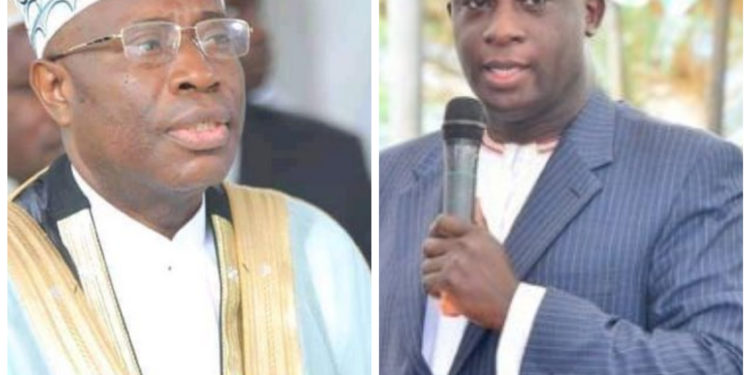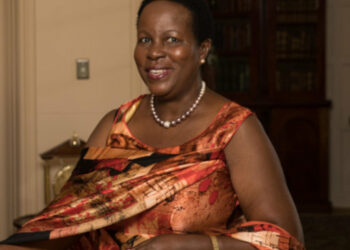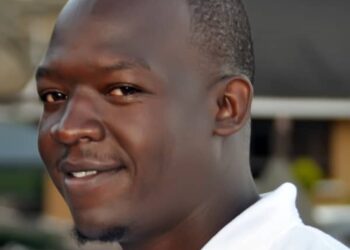Prince Dr. Kassim Nakibinge Kakungulu is a very lucky man. He is both a traditional and spiritual leader. Traditional because, he is part of the Kingdom of Buganda’s Royal Family and all Kabaka’s subjects take him with high regard.
He is spiritual in a sense that his grandfather, the late Prince Nuuhu Kyabasinga Mbogo, succeeded a Muslim Kabaka, Nuuhu Kalema, in leading Ugandan Muslims, at the time of the colonial conquests.
But critiques say that, though popular, the titular head is in reality an absolute monarch, although at hand, is seen as a constitutional monarch.
On face value, Prince Nakibinge allows his subjects, through Majlusul Ulama (College of Sheikhs) to elect the Supreme Mufti. But in reality, they elect whom he endorses and if he loses interest in him, they sack him or he is forced to resign- a scenario of the former Supreme Mufti Sheikh Silliman Kasule Ndirangwa and his predecessor Sheikh Abdul Obeid Kamulegeya.
The difference between an absolute monarch and a constitutional monarch is that the former rules and reigns by Grace of God and is answerable to God alone but not to his people while the latter is revolutionary like it was in France (1789), Russia (1917), Egypt (1952), Libya (1969), Ethiopia (1974),among others.
Those countries became republics. In a republic leaders are supposed to be democratically elected by the people and are answerable to the people.
The remaining absolute monarchs are oil rich Sheikhdoms in the Arabian Peninsula like Saudi Arabia, Kuwait, Bahrain, Oman, Jordan. But Kuwait is moving towards a constitutional monarchy so are Jordan and Morocco.
In Saudi Arabia the King also doubles as a Prime Minister and the Crown Prince also doubles as Deputy Prime Minister. The King of Swaziland is also an absolute monarch who appoints and sacks the Prime Minister as he so wishes.
Constitutional monarchies are where Kings and Queens Reign and people rule themselves. The living example is the Queen of England who is a Head of State but executive power is with the Prime Minister who is elected by Parliament. It is similar in Spain, Belgium, Denmark, Sweden, Norway, Japan, Lesotho, Zulu among others.
In Uganda, Muslims believe that Kakungulu in his line would have been among the kings of Buganda but his lineage was cheated because his grandfather Prince Nuuhu Kyabasinga Mbogo declined to renounce Islam in order to become a Kabaka.
However, by the time, Mbogo made peace with Capt. Lugard in 1891, he was an uncle to then Kabaka Mwanga and his rivals Kiweewa and Nuuhu Kalema. In the Kiganda tradition, an uncle cannot succeed a nephew.
Until 1911, Prince Mbogo was the undisputed leader of Muslims. But upon his death and succeeded by his son, Prince Badru Wassajja Kakungulu, a new group led by Sheikh Abdullah Mukasa Ssekimwanyi emerged based at Bukoto and Nateete.
Then in 1965 another faction- the National Association for the Advancement of Muslims (NAAM) emerged led by Sheikh Abdul Obeid Kamulegeya. Then in 1972, Uganda Muslims Supreme Council was formed by the then President, Idi Amin.
So, in 1979, after the fall of Idi Amin’s regime, when an attempt was done by new liberators led by Paul Muwanga to dismantle UMSC, they feared most, and have Kakungulu again as the Muslim leader, he declined it and formed a committee that named the late Sheikh Kassim Lumumba as interim Chief Qadhi.
According to Kabwegyere Report where both main factions of Old Kampala now under Mufti Shaban Ramadhan Mubajje, and Kibuli under Prince Nakibinge and their allies participated, Kibuli will be a neutral ground (to borrow from Gen.Moses Ali’s words) where to settle Muslim related disputes.
It was agreed there would be Regional Muftis (or Qadhis) and a Grand Mufti at Old
Kampala elected by a joint session of Majlis Ullama and Executive Committee. So, ideally, there should be no Supreme Mufti at Kibuli, but Old Kampala refused to operationalize Kabwegyere Report.
However, Kibuli cannot lose prominent sheikhs like Abdul Obed Kamulegeya, Yusuf Issa Byekwaso, Muhammad Ahmad Kisuule, and now the immediate former Supreme mufti, Silliman Kasule Ndirangwa, and it remains the same. There is fear that Prince Nakibinge rules with an iron fist. Let the Prince reigns and the ullama (Islamic clerics) rule.
Haji Ahmed Kateregga Musaazi is a veteran journalist and a
Communications Assistant with Government Citizen Interaction Center
(G.C.I..C.) , Ministry of ICT and National Guidance.
Do you have a story in your community or an opinion to share with us: Email us at editorial@watchdoguganda.com













